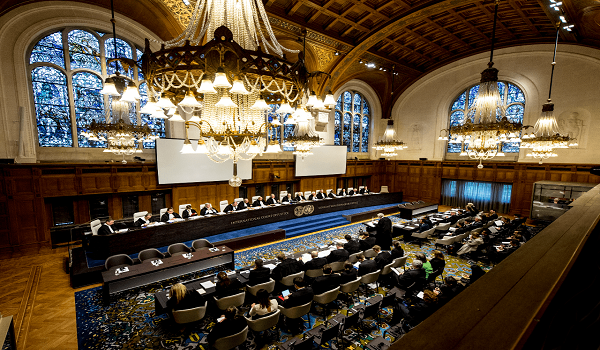Part II
Unfortunately, the advisory opinions of the ICJ have not led to much change in the past. Despite the ICJ’s advisory opinion of 9 July 2004, stating that the Israeli settlements in the West Bank and East Jerusalem violate international law, Israel’s settlement activity continues to expand. Additionally, the Knesset resolution on 18 July that overwhelmingly rejected the establishment of a Palestinian state – and Netanyahu’s comment that ‘… the legality of Israeli settlements in all parts of our homeland cannot be disputed’ – demonstrates that the thinking of the Israeli regime is devoid of logic or any consideration of growing international opinion, legal or moral.
The apartheid Israeli regime has little regard for international law and ignores the rulings of the UN, the ICC and the ICJ. A most glaring example is its dismissal of the UN Security Council Resolution 497 of 1981, declaring any Israeli jurisdiction over the Golan Heights as ‘null and void and without international legal effect’. Israel has the full support of the USA and its allies and so it indiscriminately and viciously ignores any inkling of human rights. Their impunity leaves us feeling helpless and deflated.
This advisory opinion, however, remains fundamental. While Israel’s compliance is preferred, the opinion strengthens the argument for the right to resist. In international law, the right to resist is closely linked to the right to self-determination.
The advisory opinion specifically references the ‘prohibition on the use of force’, which implies that occupation forces are prohibited from employing force against the legitimate pursuit of self-determination. However, as per the UN General Assembly resolution 2625, entities striving for self-determination are permitted to utilise military force if no alternative means are available to accomplish their objectives.
If Israel is not going to comply with international law, it is incumbent on citizens to force them. The boycott, divest, and sanctions (BDS) campaign must intensify, and workers must prevent Israeli ships from docking and offloading products in their ports. Protests must continue. Governments must be forced to cut all ties with Israel, stop supplying it with arms, recognise the right of Palestinians to self-determination, and equally important, their right to resist.
Adherence to international law is crucial for resolving global disputes. However, in cases where states refuse to comply, we, as global citizens, must take decisive measures to ensure enforcement.
Reem Haddad

